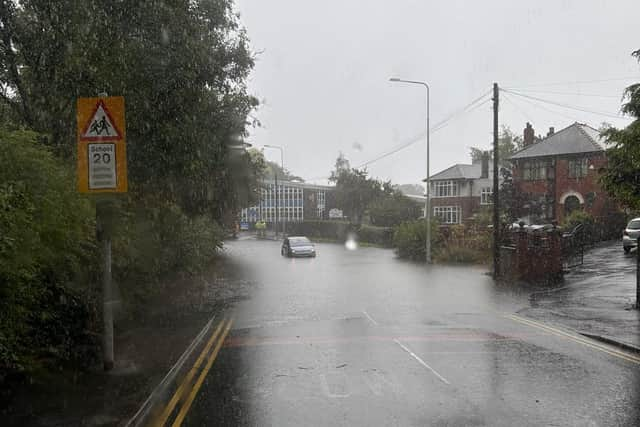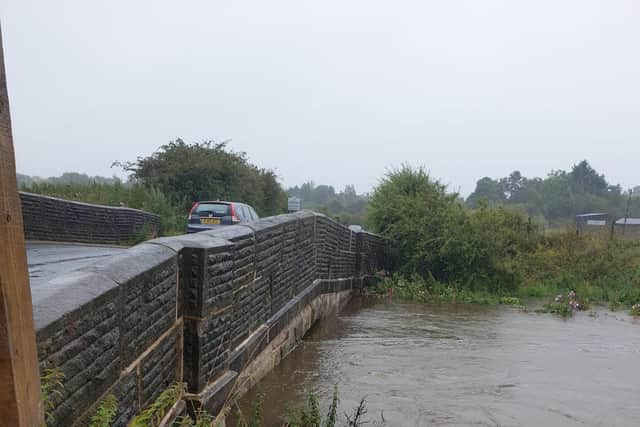July was Preston’s wettest on record with 305% of expected rainfall
and live on Freeview channel 276
The past month massively exceeded the long-term average rainfall for July, with 234.6mm of rain falling in the month – 247 per cent of its long-term average.
Preston in particular recorded 305 per cent of average July rainfall, according to BBC Weather.
Advertisement
Hide AdAdvertisement
Hide AdGreater Manchester and Merseyside also had their wettest July, as a succession of weather fronts brought long periods of rain.
The news follows the hottest June day ever being recorded in Lancaster on June 12.
The Met Office’s Mike Kendon, who works as part of a team that looks after the UK’s climate records, said: “It has been a significantly wet month for much of the UK; particularly for those in Northern Ireland.
“The jet stream has been shifted to the south of the UK for much of the month, simultaneously allowing extreme heat to build in southern Europe for a time, but also allowing a succession of low pressure systems to influence the UK, with long periods of winds and rain that many more typically associate with autumn weather.”


Advertisement
Hide AdAdvertisement
Hide AdSomewhat unsurprisingly, sunshine was also in short supply in July 2023, though not enough to trouble any records in a series back to 1910.
The UK had 19 per cent fewer hours of sunshine than average, with 140.3 hours.
July has also been slightly cooler than average, with a mean temperature of 14.9C – 0.3C cooler than the current 30-year meteorological averaging period (1991-2020).
Some online debate has suggested a cooler than average month dismisses the influence of climate change.


Advertisement
Hide AdAdvertisement
Hide AdHowever, the Met Office said this is not the case, as the UK’s variable climate will continue to have some cooler-than-average months.
Mr Kendon added: “Although July 2023 is considered to be a cooler-than-average July by current standards, for an early climate baseline of 1961-1990, if would have been considered a warmer-than-average July.
“This is a tangible example of how we see climate changing in our long-term data set.”
A number of flood warnings were issued across Lancashire on July 23 as heavy rain battered the county.
The heavy rainfall disruption to the county, with roads and homes across Lancashire flooding.
